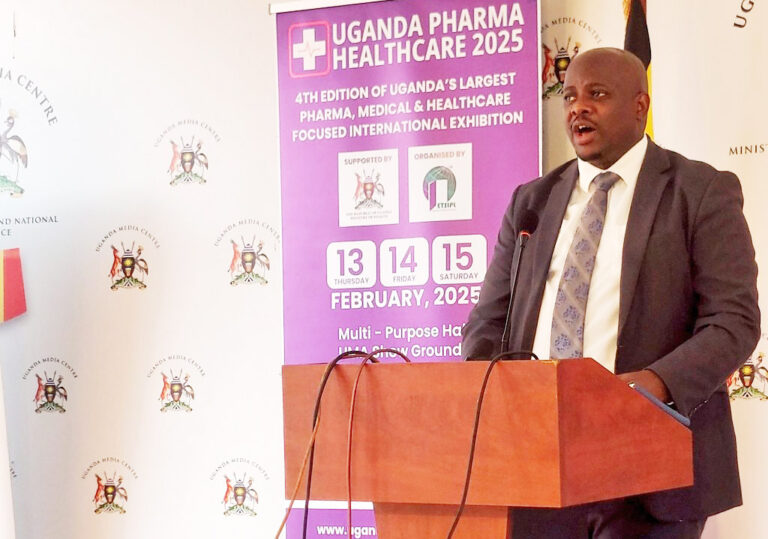Authorities at the Ministry of Health have confirmed two additional cases of Ebola, raising concerns over the ongoing outbreak.
The new cases are close relatives of a 32-year-old nurse from Mulago Hospital who succumbed to the virus on January 29.
Health ministry spokesperson Emmanuel Ainebyoona made the announcement during a press conference at the Uganda Media Centre in Kampala, where he also highlighted efforts to contain the spread.
The two infected individuals are currently receiving treatment, and over 234 contacts—including health workers and family members—have been identified.
Some of these contacts have been administered the Ebola vaccine under compassionate use guidelines.
Ebola Sudan Virus Strain Identified
Uganda is battling the Sudan strain of the Ebola virus, which has no approved vaccines or treatments.
Those exposed to the virus are being monitored in isolation at treatment centers in Mulago, while the ministry has deployed a mobile testing laboratory in Mbale to accelerate sample analysis and improve response times.
Government Implements School Safety Measures
Regarding school operations, Ainebyoona assured the public that the Ministry of Health is working closely with the Ministry of Education to implement strict prevention measures against both Ebola and Mpox to ensure student safety.
WHO Donates Trial Vaccine to Combat Outbreak
In a major step toward controlling the outbreak, the World Health Organization (WHO) has donated 2,160 doses of an experimental Ebola vaccine to Uganda.
The vaccine trial aims to assess its effectiveness in preventing the spread of the Sudan virus disease (SVD), a subtype of Ebola virus.
WHO, in collaboration with the Ministry of Health, Makerere University Lung Institute, and the Uganda Virus Research Institute, is overseeing the trials alongside international experts.
“The goal of the trial is to evaluate a potentially effective vaccine that could contribute to ending the outbreak and protecting at-risk populations in the future,” WHO stated.
Those eligible to receive the vaccine include individuals at the highest risk, such as close contacts of confirmed cases and frontline healthcare workers.
Previous Ebola Sudan outbreaks have had fatality rates ranging from 41% to 100%. Uganda’s most recent outbreak, which lasted from September 2022 to January 2023, resulted in 164 cases and 77 deaths.
Vaccination of Health Workers Underway
To protect frontline workers, vaccination efforts began yesterday at Mulago National Referral Hospital.
Prof. Bruce Kirenga, principal investigator for the trial vaccine and director of Makerere University Lung Institute, stated that the vaccine trial involves a single dose and requires participant consent.
“This vaccine is being tested under a clinical trial. Participants voluntarily consent to receive it, after which they are monitored for 28 days,” Kirenga said.
He added that the vaccine, developed by the International AIDS Vaccine Initiative, begins generating an immune response within seven to nine days.
Impact on Tourism and International Regulations
As the outbreak unfolds, Uganda has tightened health surveillance at major entry points, including Entebbe International Airport and key border crossings.
Simplicious Gessa, head of communications at the Uganda Tourism Board, reassured travelers that enhanced screening measures are in place to prevent cross-border transmission.
Meanwhile, Ainebyoona reiterated that under international health regulations, a single confirmed case of a viral hemorrhagic fever constitutes an outbreak, necessitating an official declaration. Investigations are ongoing to determine the exact source of the infection.
With Uganda’s health authorities intensifying response measures and international partners stepping in with vaccine trials, efforts are underway to curb the spread of Ebola and protect the country from further fatalities.

